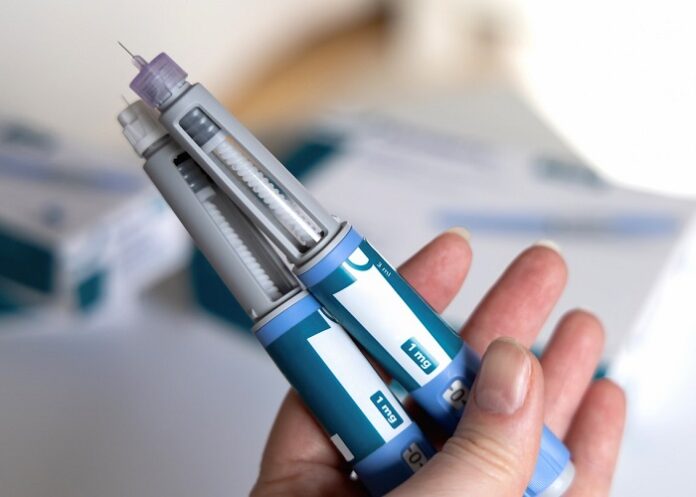Britain’s Medicines and Healthcare products Regulatory Agency (MHRA) is reminding healthcare professionals to ensure patients are aware of the known side effects of glucagon-like peptide-1 (GLP-1) receptor agonists – commonly used to treat type 2 diabetes or obesity.
The common risk of gastrointestinal side effects may affect more than one in 10 patients, and although most reactions are mild, some may also be serious.
Doctors also need to be on the alert for signs of misuse of these medicines, remind patients that they risk side effects, and report any adverse reactions.
GLP-1 receptor agonists approved for weight management are effective options for patients with a BMI higher or equal to 30 kg/m2 or for patients whose BMI is higher or equal to 27 kg/m2 and have a weight-related medical condition, such as cardiovascular disease.
GLP-1 receptor agonists can only be prescribed by a registered healthcare professional.
When appropriately used, the benefits outweigh the risks, but this benefit-risk balance is positive only for those patients within the approved indications for weight management or type 2 diabetes as described in the product information.
Patients should be aware that some falsified medicines have been found to contain insulin, which if used, could cause severe hypoglycaemia, requiring urgent medical attention.
It is vital for patients to carefully read the instructions in the Patient Information Leaflet and use the prescribed dose.
Potential side effects can include gastrointestinal conditions, like vomiting and diarrhoea, which may sometimes lead to more serious complications like severe dehydration.
Gastrointestinal side effects are more likely to occur at the start of treatment or after a recent increase in dose. Healthcare professionals should also discuss the risk of serious, but less common side effects such as pancreatitis and gall bladder disorders.
Hypoglycaemia (low blood sugar) can occur in non-diabetic patients using some GLP-1 receptor agonists for weight management and healthcare professionals should ensure patients are aware of the symptoms and signs of this condition, such as sweating, shaking, feelings of tiredness or weakness and confusion.
Where this occurs, patients be advised that they need to eat or drink something to raise their blood sugar quickly, and if symptoms persist they should seek medical attention.
See more from MedicalBrief archives:
Novo, Lilly sued by patients for gastroparesis
US study finds serious side effects from weight-loss drugs

